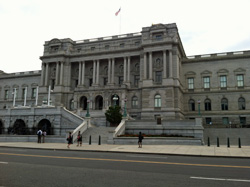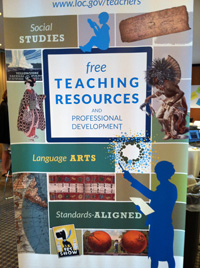The Advisory Committee of Teachers (ACT) is an International Reading Association committee comprised of exemplary reading and literacy teachers from around the world. Educators who best exemplify the mission of IRA are chosen from a pool of applicants to serve a three-year term. Among other responsibilities, the main charge of ACT is to be the conduit between IRA’s members and the board of directors.
In an effort to reach out to IRA members, ACT members will be drafting monthly columns regarding hot topics in the field in a series called “Teaching in ACTion.” More importantly, ACT invites member to engage in the conversation by sending responses to ACT. ACT’s goal is to get a feel for how members feel about current hot topics, so that we may better serve members by sharing their concerns with the board of directors.
Please enjoy ACT’s first column by Karyn A. Gloden, and become engaged in the conversation.
“A good question is never answered. It is not a bolt to be tightened into place, but a seed to be planted.”
~Henry David Thoreau
 I am always searching for ways to deepen my knowledge and cache of primary resources. What better opportunity to do this than by participating in the 2013 Summer Teacher Institute at the Library of Congress? As an institute fellow in one of the four sessions offered during June and July, I not only was able to learn and network with fellow educators from across the country but to participate in content- and pedagogy-rich experiences focused on the millions of free primary sources housed in our nation’s library.
I am always searching for ways to deepen my knowledge and cache of primary resources. What better opportunity to do this than by participating in the 2013 Summer Teacher Institute at the Library of Congress? As an institute fellow in one of the four sessions offered during June and July, I not only was able to learn and network with fellow educators from across the country but to participate in content- and pedagogy-rich experiences focused on the millions of free primary sources housed in our nation’s library.
Based in the Madison Building of the Library of Congress (LOC) complex, the institute instructors included LOC educators and curriculum developers as well as the 2013 LOC Teacher in Residence and expert librarians from each of the library’s numerous collections, such as Film, Maps, Veterans History, and Sound Recordings. While I was fortunate enough to have five full days and four evenings of learning, I understood on the first day that a teacher could spend the entire summer at the LOC and experience only a fraction of the treasures and tools available. The remedy for wishing for more time was solved in the discovery that outside of the enormous collection in the buildings, the LOC provides the world’s largest online collection of historic artifacts. This means that every educator can utilize the primary sources and classroom materials as well as self-paced modules for learning how to teach with primary sources by simply accessing the LOC website.

Among the numerous valuable tools that the LOC has developed for the Teaching With Primary Sources program is the “Considerations for Selecting Primary Sources: Checklist” which provides the classroom teacher with a framework for evaluating and selecting the best primary source document for a particular lesson or unit of study. Given that there are so many texts, visuals, and other media possibilities, this tool is critical, asking such questions as: Will this primary source meet the needs and interests of my students? and Will my students be able to identify the point of view? Each question includes a list of criteria for critical analysis of the document’s effectiveness for the educator’s particular students. The protocol utilized for the generic “Primary Source Analysis Tool” includes a process of: observe, reflect, question with each component providing students with sample questions for investigation and deep thinking. This is the document that I will utilize most frequently in my own learning and in my instructional plans for my students’ learning.
The Common Core State Standards for English Language Arts and the CCSS Standards for Literacy in History/Social Studies, Science, and Technical Subjects demand that all students engage in rigorous and relevant learning with primary source documents. While I highly recommend every teacher spend some of the summer within the walls of our nation’s library, the resources and tools can be brought into your classroom today. Visit www.loc.gov/teachers to enrich your own and your students’ learning with this vast collection.
 Karyn A. Gloden serves on the International Reading Association Advisory Committee of Teachers (ACT) and teaches at Wake Young Women’s Leadership Academy in Raleigh, NC, kgloden@gmail.com.
Karyn A. Gloden serves on the International Reading Association Advisory Committee of Teachers (ACT) and teaches at Wake Young Women’s Leadership Academy in Raleigh, NC, kgloden@gmail.com.